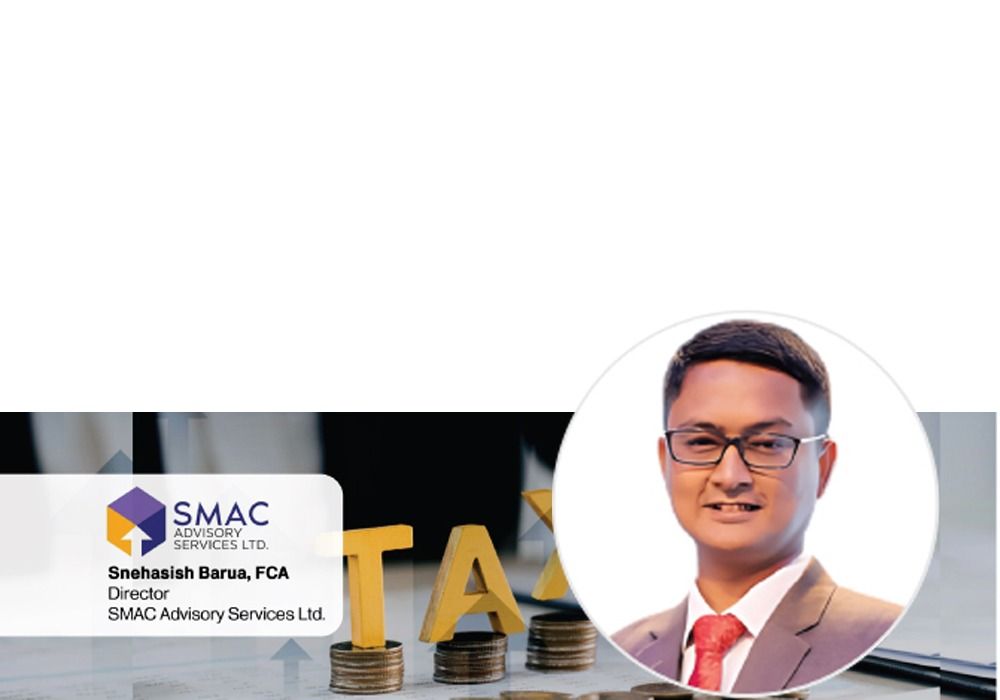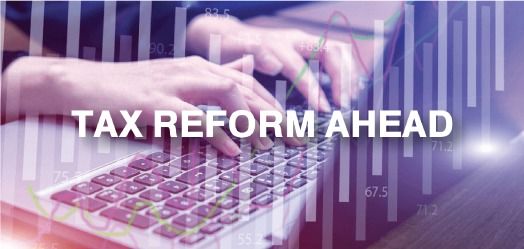- info@ficci.org.bd
- |
- +880248814801, +880248814802
- Contact Us
- |
- Become a Member
- |
- |
- |
- |
- |

Currently, source tax is one of the main tools for revenue collection. According to the latest annual report of the National Board of Revenue (NBR) for the fiscal year 2021-2022, more than 62% of total income tax is collected at source. Subsequently, the scope of source tax has been further expanded, and due to increased monitoring by tax officials, the contribution of source tax will increase further, which we will know when the annual reports for the period after 2021-2022 are published. Regardless of which government is in power, collection by NBR does not tend to deviate from this trend. It can be said that it has become a tradition.
The biggest problem within this tradition is that direct tax lost its characteristics and more became an indirect tax. Since there is no easy way to ensure tax collection from lower cascade, more taxes are being collected from taxpayers at the initial stages of production, import, or service.
Let's understand with some examples how advance income tax/Tax Deduction at source is increasing the tax burden on businesses and ultimately how it is increasing the price of goods and services, impacting consumers.

Example at the Import Stage:
Let's assume a fruit importer imports dates. Suppose the customs value of the dates, including shipping costs, is 100 Taka. Utilizing SRO benefits, such an importer must pay 15% customs duty, 3% regulatory duty, 15% VAT, and 10% advance income tax. Thus, excluding income tax, his cost comes to 136 Taka. Since the income tax paid at the import stage is the minimum tax, let's calculate at what price this importer needs to sell the dates.
Assume the selling price is 190 Taka. Thus, at a rate of 7.5%, i.e., 13 Taka must be paid as VAT on this price. After VAT, the price stands at 176 Taka. Deducting the purchase cost of 136 Taka, the profit is 40 Taka. Assume the effective income tax rate is 25%. Applying the 25% tax rate on the 40 Taka profit, the tax liability is 10 Taka. Since 10 Taka was paid as advance tax at the import stage, the importer doesn't have to pay any further income tax unless there is income from other sources.
This means that this importer must make a 30% profit on his costs if he wants to adjust the advance income tax. If a 30% profit cannot be made, then this advance income tax becomes part of his costs and increases the product's price. Since under the current system, the NBR is unable to collect taxes from subsequent marketers, such as wholesale or retail traders, apart from the importer, their tax burden is also being imposed on this importer.
This means that advance tax is being collected on the sale price of a product or service before it is ensured whether there will be a net profit from selling the product or service in the end. As a result, traders are forced to increase the wholesale price of goods or services to ensure profit. This increased price of goods or services ultimately falls on the consumers.
Impact of Taxes in the Service Sector:
In the service sector, a 10% source tax is deducted from the bills of service providers, which is considered a minimum tax. If a company issues a bill of 100 Taka, then 10 Taka is deducted as source tax. To adjust this, the company needs to make a profit of 40 Taka, which is often unrealistic. Consequently, service providers increase the price of their services to manage the additional tax burden, which directly impacts consumers. Efforts are made annually to rationalize the source tax for manufacturers, but no initiatives are being undertaken to reduce the tax burden for service providers. According to the Bangladesh Bureau of Statistics, the number of service providers has increased significantly compared to manufacturers, yet their issues remain overlooked.
The reality of taxes in the construction sector:
The same scenario can be observed in the construction sector. For a construction company, a 7% source tax is deducted, meaning a project worth BDT 100 requires a tax payment of BDT 7. This is the minimum tax. If the effective tax rate is 25%, then a profit of BDT 28 is needed to meet the tax liability. However, as it is challenging to achieve this amount of profit in the construction sector, the additional tax burden increases construction costs. Eventually, this raises the cost of building homes for the general public and businesses.
Impact of Advance Tax on Raw Material Import:
When a company imports raw materials, it has to pay a 5% advance income tax. Later, if the product made from these raw materials is supplied to a distributor or institution that deducts tax at source, a 5% tax is deducted at that time as well.
Let's assume the import price is 50 Taka, on which a 5% advance income tax has been paid before releasing the goods from customs. Other costs amount to 30 Taka. The product is sold for 100 Taka. When the manufacturer sells goods to the distributor, assuming a withholding entity, 5 Taka tax (for example) is deducted on the 100 Taka. In total, 10 Taka has been paid as tax. So, the company's profit is 20 Taka. If a 25% tax is applied to this 20 Taka profit, the tax liability is 5 Taka. But already 10 Taka has been paid as tax to the government exchequer. The question arises - will the additional 5 Taka be refunded? Legally possible, but in practice, it is complex and time-consuming. Now, without the advance income tax system, the consumer could have gotten the product at least 5 Taka cheaper. On the positive side, in the 2024 Finance Act, advance income tax on 36 types of raw materials has been reduced from 5% to 3%. However, this doesn't solve the underlying issue, which is being overlooked.
Tax Disparity in the Agricultural Sector:
Commercial seed production companies are required to pay a 3% source tax when collecting seeds from contract farmers. However, the same agricultural product is subject to a 1% source tax when sold in the market. This disparity increases the cost of seed production, placing a burden on farmers and raising agricultural production costs. This is not at all consistent. Moreover, many products are not included in the rules under Section 3A of the source tax deduction rule. Those who want to do business under this provision have to add this additional cost to the product's price, resulting in increased prices.
Potential Reforms and Recommendations:
It cannot be denied that tax net is low and tax collection is inadequate as lot of assesses are not paying their due taxes. However, it is not reasonable to increase the tax burden on those who do pay taxes while not targeting those who evade taxes, and ultimately increasing the price of goods or services, thereby burdening the consumers. This problem can be solved by gradually increasing the tax net, but how can that be achieved?
Strengthening Source Deduction System:
The "Central Source Deduction Cell" formed by the National Board of Revenue (NBR) can ensure the effectiveness of the source tax system. However, for this to happen, it is necessary to create a perception that paying taxes is a citizen's responsibility rather than something to be feared. To create this perception, the tax collection system needs to be made easier and more transparent.
Expansion of DVS Usage:
The DVS system introduced by ICAB can be used to analyze the actual income and expenses of companies. It is necessary to rationalize the source tax rate based on industry-specific income and expenses.
Reduction of Tax Burden on Service Providers:
Initiatives should be taken to bring the source tax for internet, construction, and all other service sectors to a reasonable level.
Reduction of Advance Income Tax and Facilitation of Tax Adjustment:
By analyzing the data from the ASYCUDA database, the advance tax on more raw materials imported by industrial undertaking can be reduced to 3%. The process of refunding advance tax needs to be simplified so that businesses are not forced to bear unwarranted tax burdens.

Reforming Source Deduction Regulations in the Agricultural Sector:
It is necessary to rationalize the source tax on agricultural products in coordination with the Ministry of Agriculture.
No matter what arguments are made in favor of advance income tax, those arguments will not establish tax fairness in any way. In the existing system, traders are indeed forced to pay taxes, but their tendency to evade taxes is increasing manifold. Various unethical practices are being adopted to evade taxes, which is also encour- aging corruption.
On the other hand, the existing tax structure is creating undue pressure on importers, traders, and service provid- ers. The burden of source deduction and advance tax is increasing business costs, which ultimately impacts the general consumer.
According to Chanakya's Arthashastra, taxation should not be a painful process. The tax structure should be gentle and cautious when making decisions for the people. Ideally, the government should collect taxes like a bee, which extracts just the right amount of honey from the flower so that both can survive.
Political governments like to show an increase in the size of the budget every year. As a result, the NBR faces increased pressure to collect additional taxes every year. The government formed in the July-August uprising can come out of this unnecessary practice of increasing the budget size. After the anti-discrimination movement, there is widespread public expectation for comprehensive reforms from the interim government. Now is the time to bring significant reforms to the tax system in the public interest. If the proposed reforms are adopted, the tax net will expand, the business





